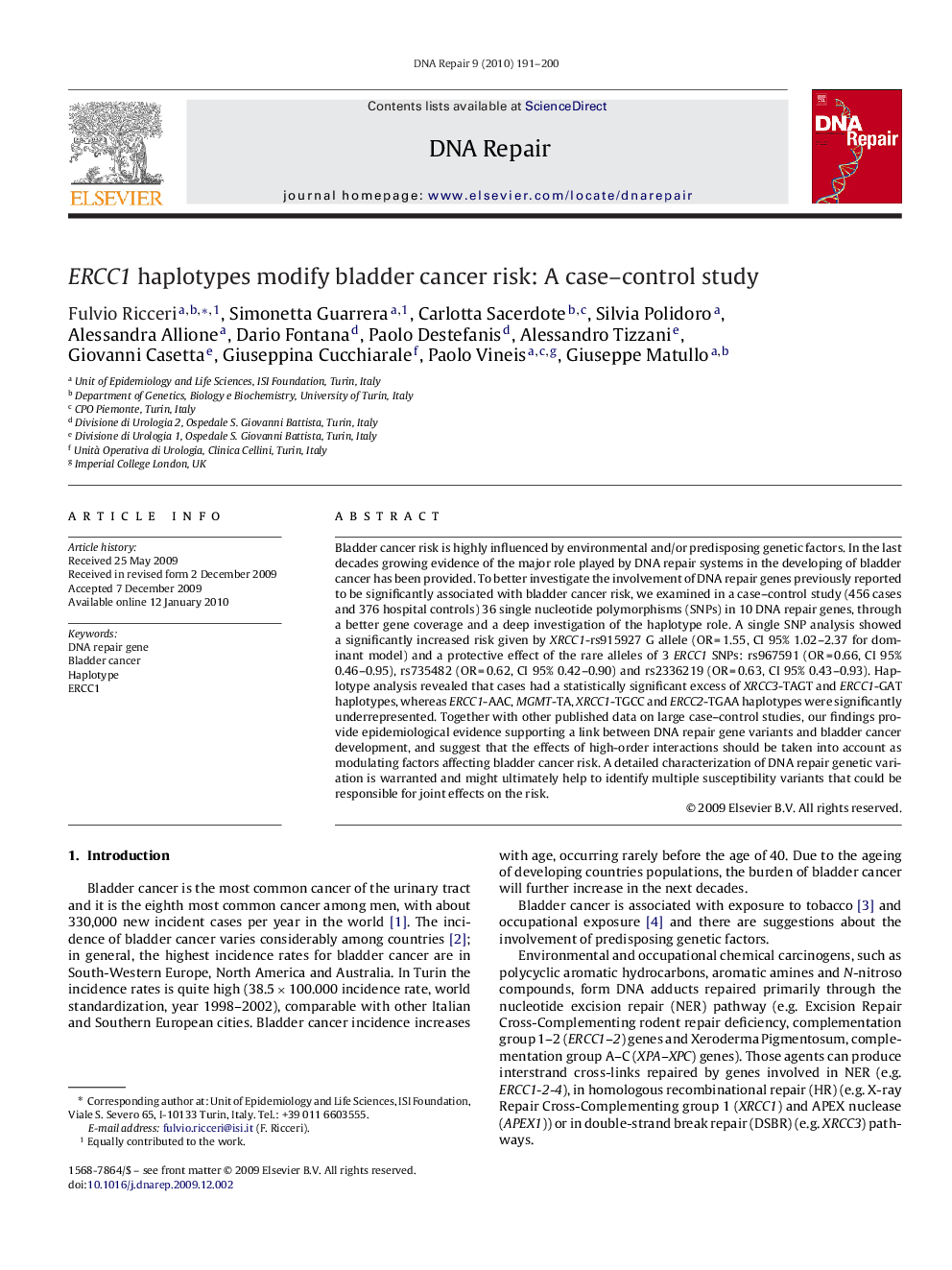| Article ID | Journal | Published Year | Pages | File Type |
|---|---|---|---|---|
| 1981166 | DNA Repair | 2010 | 10 Pages |
Bladder cancer risk is highly influenced by environmental and/or predisposing genetic factors. In the last decades growing evidence of the major role played by DNA repair systems in the developing of bladder cancer has been provided. To better investigate the involvement of DNA repair genes previously reported to be significantly associated with bladder cancer risk, we examined in a case–control study (456 cases and 376 hospital controls) 36 single nucleotide polymorphisms (SNPs) in 10 DNA repair genes, through a better gene coverage and a deep investigation of the haplotype role. A single SNP analysis showed a significantly increased risk given by XRCC1-rs915927 G allele (OR = 1.55, CI 95% 1.02–2.37 for dominant model) and a protective effect of the rare alleles of 3 ERCC1 SNPs: rs967591 (OR = 0.66, CI 95% 0.46–0.95), rs735482 (OR = 0.62, CI 95% 0.42–0.90) and rs2336219 (OR = 0.63, CI 95% 0.43–0.93). Haplotype analysis revealed that cases had a statistically significant excess of XRCC3-TAGT and ERCC1-GAT haplotypes, whereas ERCC1-AAC, MGMT-TA, XRCC1-TGCC and ERCC2-TGAA haplotypes were significantly underrepresented. Together with other published data on large case–control studies, our findings provide epidemiological evidence supporting a link between DNA repair gene variants and bladder cancer development, and suggest that the effects of high-order interactions should be taken into account as modulating factors affecting bladder cancer risk. A detailed characterization of DNA repair genetic variation is warranted and might ultimately help to identify multiple susceptibility variants that could be responsible for joint effects on the risk.
